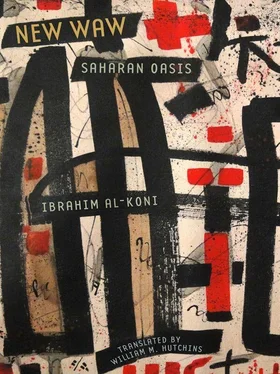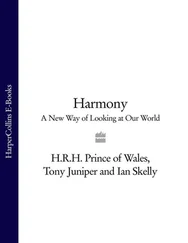The diviner shouted in a threatening voice, “How dare you ridicule me? How dare you accuse me?”
“Hee, hee, hee. On my way to my master’s house I was wondering why people avoid paying their debts and decided to ask my master why enmity insinuates itself between the debtor and the creditor despite the fact that the intellect says that debt ought to build sturdy bridges of affection between them. Did my master speak to me about wisdom?”
He leaned forward till the end of his veil almost landed in the fire. He released into the face of the diviner a hateful laugh like the hiss of a serpent. Then he leaned back and watched the diviner with a malicious expression.
The diviner said, “The Spirit World knows that I made a good faith effort to repay the debt I owe you. Had the heavens not intervened and the drought, which destroyed my herds, descended, I would have repaid the debt a long time ago. Don’t think that a man can wash his hands of the burdens of the people of the wasteland merely by reaching the land of forgetfulness. In fact, liberation from the cares of the wasteland is the precondition for attaining forgetfulness. If I made the trip and was content to return after going half way, I only did that out of a desire to pay the debt. Had it not been for that desire, no antidote would have been able to bring me back to this earth.”
“Hee, hee … but my antidote returned you to our encampments, Master. Admit, Master, that my antidote is more potent than the forces of the Spirit World. Do you know why, Master? Because it’s an antidote that came to me from those encampments, because it is an antidote borrowed from the land of the Spirit World. Hee, hee, hee.”
The diviner was silent. He was silent for a long time. Finally he said, “In the past few days the tribe’s nobles have praised the one who returned me to them. I was thinking the reverse. I was telling myself that I would never forgive the specter who dragged me from the gardens of the Western Hammada to return me to the concerns of the world and the fetters of life in the tribe’s encampments. Now that I learn this specter wasn’t one of the shadows of the Spirit World, but a miserable man who merely wanted to retrieve a handful of gold dust, I see that I should punish him the way he has punished me. The only punishment I can think of is to refuse to repay the debt. This is your penalty!”
“What does my master mean to say?”
“Your punishment for your vile deed is not receiving your payment.”
“Does my master wish to turn affection into hatred pursuant to the law of the creditor and the debtor?”
“Defaulting on a loan is a mild punishment when gauged against your hateful deed!”
“Why are good deeds in this wasteland destined to be rewarded with ingratitude?”
“Get out or I’ll order you whipped!”
“You refuse to pay me and then order me whipped too?”
“Leave at once if you want to avoid falling into the hands of slaves with forearms stronger than iron chains!”
The guest leapt to his feet. Once outside he murmured a threat, as if uttering a prophecy to himself. “The desert has taught us to go and live in some earth other than the desert if we happen to acquire an enemy. Beware of living in the desert any longer, Crow of Misfortune!”
4
The tribe was destined to hear this prophecy again the day the diviner was slaughtered.
What happened was that the nobles’ debate about the sacrificial victim finally ended with an agreement to slaughter a black, male kid, because the exegesis adopted by the majority affirmed that “crow” did not refer to the physical bird; the secret was hidden, instead, in its color. The special attribute of the crow was not its conduct, gait, or other less obvious characteristics but its blackness, which was its principal distinction. So they selected a black goat kid and brought it to the diviner to sacrifice on the stones of the tomb.
The nobles circled round the temple mount, and children and curiosity seekers patrolled the empty area near the tent sites. Then one of the vassals brought the bound kid and placed it at the soothsayer’s feet. Busy reciting ancient talismans, he cast a vacant gaze at the naked sky. Then from his sleeve he brought out the bronze dagger and removed it from the scabbard. He bent over the sacrificial offering, and the goat bleated as loudly as it could. Then the diviner gestured to one of the vassals to come help him. The man put his knee on the goat’s neck and clung to its throat with both hands. So the soothsayer drew the greedy blade across the neck vein, and blood spouted copiously from the throat. It spattered and soiled the stones of the wall. The diviner withdrew his dagger and wiped the blood from it on the hair of the slaughtered goat. Then he sank the blade into the dirt near the blood offering’s head.
Just then the specter approached the temple. He was awe-inspiring with his stern gait, broad shoulders, and black raiment. He passed by the nobles and proceeded till he neared the soothsayer’s location. He said with the same strange rumble from which the diviner could make out the words only with difficulty that night: “I told you, Crow of Misfortune, to go and live anywhere but in the desert if you happened to acquire an enemy here.”
He took the atrocious dagger, which was planted in the dirt, and stabbed the diviner in the throat. Everyone saw the lethal blade gleam in the light of the setting sun before disappearing up to its hilt in the priest’s throat. The poor man emitted a weird rattle and seized the hilt with both hands. He leaned forward a little, and his eyes bulged out until onlookers thought they would drop from their sockets. Then he swayed as he struggled and fought to extract the ferocious blade from his throat. Blood flowed even more vigorously than the blood of the sacrificial offering, soiling his veil and flowing over all his clothing. When the gulled man moved in his attempts to save himself, his blood soiled the stones of the wall too. Everyone asserted that they heard the rumble of thunder far away at that moment, even though there was not a cloud in the sky. When they turned, they saw lightning split the horizon to the north, and they understood everything.
A voice cried out, “Did you hear what he said? He referred to our master as ‘the Crow of Misfortune.’ How could we have forgotten that all the tribes call diviners crows?”
At the moment the group snapped out of their stupor; some rushed to the diviner and others dashed after the specter, who had disappeared.
Ahallum pulled the dagger from the diviner’s throat and the flow of the blood increased. The frail body shook with a feverish convulsion before becoming rigid forever.
Emmamma embraced him for a long time, mumbling like a mentally deranged man: “Here you have preceded us to the shore of forgetfulness, which you always wanted to reach first. And you, Master, accept your crow as a sacrificial offering!”
Thunder rumbled loudly, and the horizon blazed with lightning. People turned to see that legions of black clouds had begun to assault the desert from the North.
Confucius said, “Fish were created for water; man was created for the Dao.”
Zhuang Zi
1
Thirst for the neck vein grows intense, desire for blood blazes, the tongue trembles with lust to plunge into flesh, the cutting edge gestures — craving to meet the beloved body — and the blade fidgets in the cavity of the scabbard, grieving for its loss and protesting against its suppression, cursing the punishment of confinement to these dark recesses. The body that is extended between the two leaves of the scabbard, however, remembers the talisman, recalls the symbols carved on both sides of the blade with a tongue of fire; so it appeals to the sign of the first peoples, who were the only ones to discern the dagger’s secret. It propitiates the symbol by narrating the story of the beginning. So it talks about its amazing ability to pass through bodies, to swim in blood, to tear into the toughest meats, to glide between networks of veins, and to slip down ignoble paths to avoid chunks of bone. It whispers a secret, saying that discovery of articulated joints is the greatest trick in the whole trip. It gives to this discovery the name “trade secret.” It concludes by saying that a nomad will not only double the length of his life if he discovers this secret but will accomplish his ancient dream of attaining happiness, because progress down the way of articulations is an amulet that protects one against evils and that saves a nomad from falling into captivity. I open a door in the mute body, I make a path through the deluge of blood, I slip between the groves and disappear in the jungle, I scout for locations, I always choose the soft track, I avoid rough terrain, and I’m bent on fleeing from hard ground. The Way turns north. I go north. The generous Way curves west. I bend west. The path rises; I ascend. I glide up. The tour ends with an obstinate solid mass. I stop. I scout around. I turn north, investigate to the west, and retreat a step. I take two steps forward. I search the grim wall for its secret, for its hidden gap. I never tire of searching. I don’t stop investigating until I discover the treasure, until I discover the cleft. I never struggle against the solid mass. I don’t try to force my way through. Instead, flexibility, research, and patience will open a fissure for me in its body. I slip through the narrow gap like a serpent slipping through subterranean excavations. Then I shoot down a new Way without any strife, without any controversy, without any chaos .
Читать дальше












